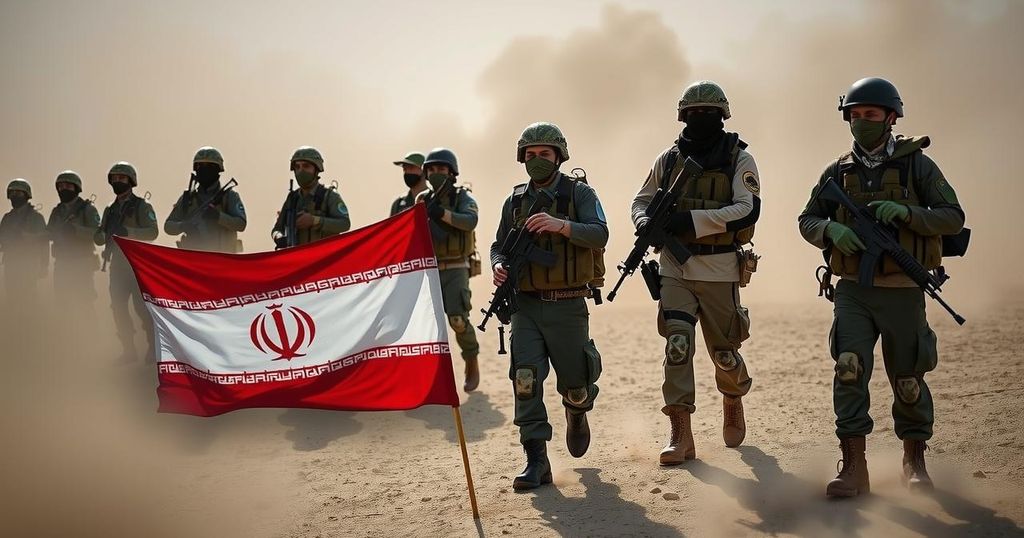Iraqi Militias Reiterate Loyalty to Iran Amidst Shifting Regional Focus

The Iraqi Popular Mobilization Units have reaffirmed their allegiance to Iran while shifting focus from Israel to Syria amidst evolving regional dynamics. Faleh Al-Fayyad emphasized their loyalty to Qassem Soleimani, as Sunni and Kurdish leaders assess the potential impacts of recent power changes in Syria on Iraq.
The Iraqi Popular Mobilization Units (PMU), also known as Hashd al-Shaabi, have reaffirmed their allegiance to Iran, as reported by the Iranian state media outlet IRNA. During a gathering in Diyala province to commemorate the defeat of ISIS in December 2014, Faleh Al-Fayyad, the leader of the PMU, expressed their unwavering loyalty to Iran and honored the late General Qassem Soleimani, who was instrumental in combating Daesh and died in a US drone strike in January 2020.
Furthermore, Al-Fayyad acknowledged Abu Madhi al-Muhandis, another significant figure who perished alongside Soleimani in the same US operation. The remarks come at a time when Iranian-backed militias appear to be shifting their focus away from hostilities directed at Israel, redirecting their attentions towards developments in Syria. The recently appointed Syrian leader, Ahmed al-Sharaa, held discussions with an Iraqi delegation, signaling a growing regional interdependence.
In Iraq, Hadi al-Amiri, the chief of the Badr Organization, which is an integral part of the PMU, expressed uncertainties about potential influences arising from the Syrian regime change. He remarked, “we’re not afraid of the new Syria,” highlighting a stance of cautious observation rather than outright concern. Moreover, political dynamics are evolving within Iraq, with Sunni leaders perceiving the shift in Syria as a potential advantage to their cause, while Kurdish factions are attentively monitoring the situation for any implications on regional governance.
The Popular Mobilization Units in Iraq, formed as a response to the rise of ISIS, have deepened their connections with Iran over the years. This relationship has often resulted in their involvement in both regional and internal conflicts. Commemorating the shared sacrifices made in the fight against ISIS, particularly the roles played by Iranian leaders, solidifies the bond between Iraqi militias and Tehran. Meanwhile, as the conflict landscape evolves, these militias are strategically recalibrating their focus towards Syria, where political changes could impact Iraq’s internal dynamics.
In summary, the PMU’s public reaffirmation of loyalty to Iran underscores the significance of Iranian influence in Iraq. As these militias shift their focus towards Syria, the implications of regional politics will likely continue to affect Iraq’s political landscape. The relationships between various factions, including Sunni and Kurdish interests in Iraq, may transform in response to the evolving situation in neighboring Syria, signaling ongoing changes in Middle Eastern geopolitics.
Original Source: www.jpost.com








